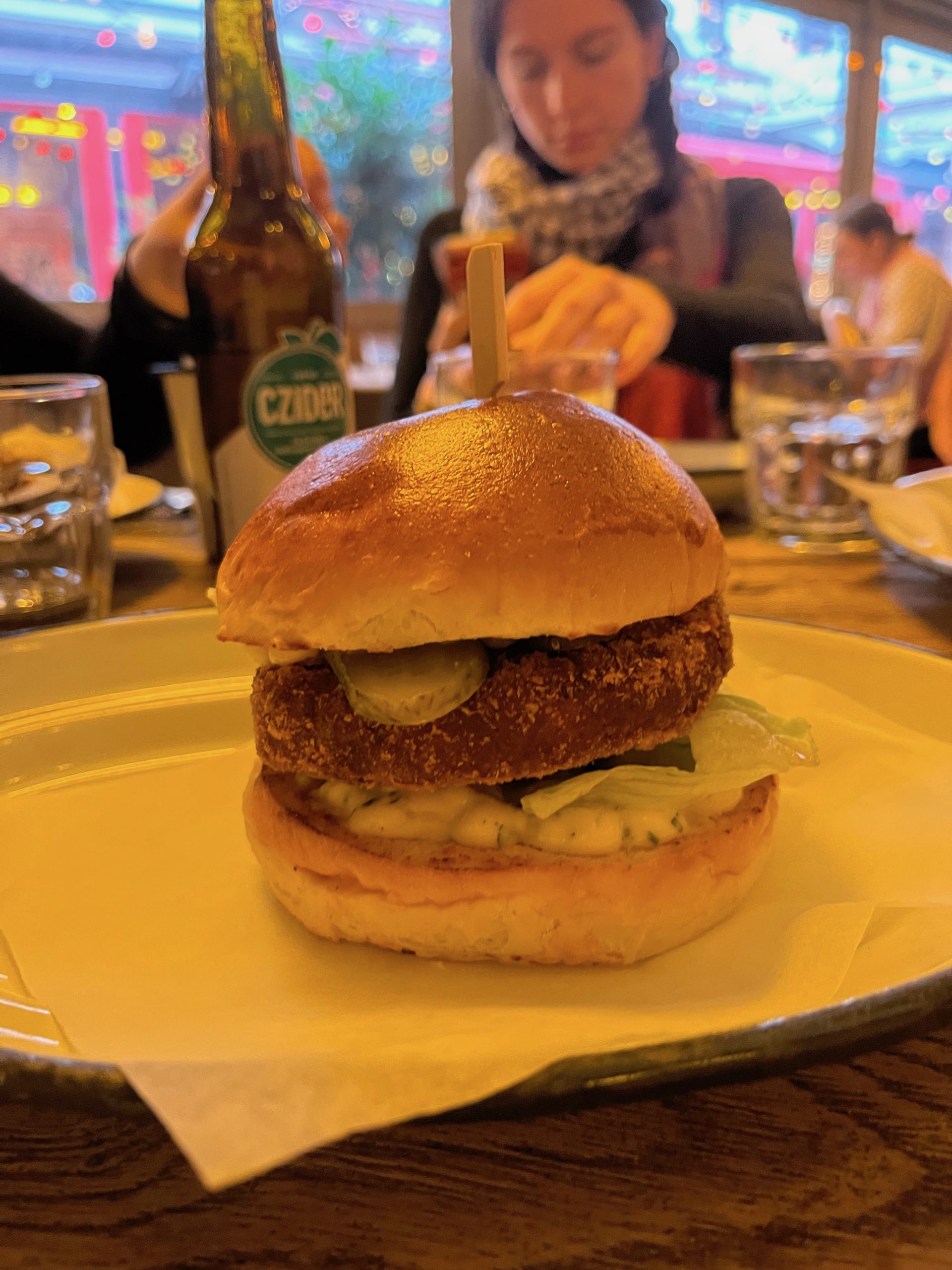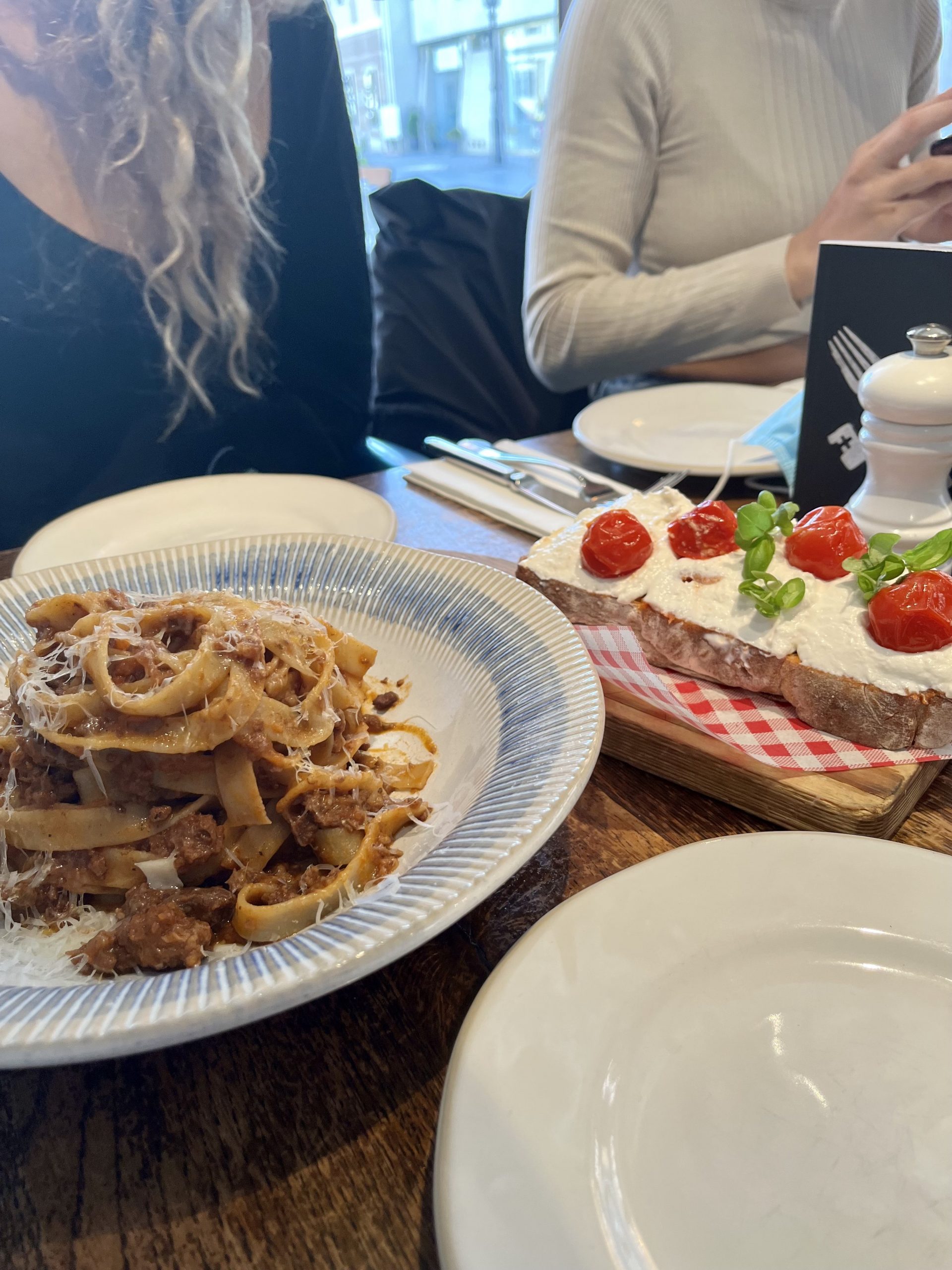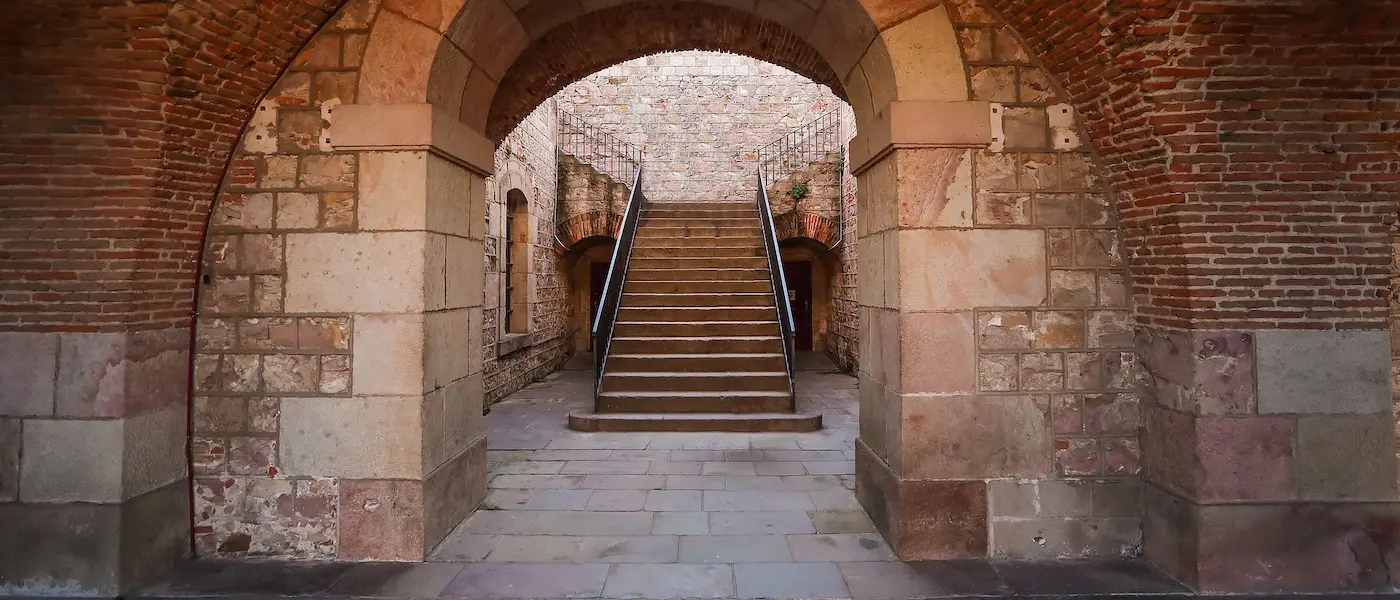1. Learn about their public transportation system.
Each city has its own unique public transportation system. You are likely going to experience some form of a metro or “underground” and buses, trains, or trams. My first suggestion is to get the apple maps app. After this, I would google taxi apps for your city and also google if there are any “city planner” or public transportation planner apps. Apple maps has a public transit tab that is super helpful for navigating through the city using public transportation. The information desk employees in the metro station are very helpful in identifying which pass will be the cheapest for your stay there! If you prefer taxis, the app you download will help so that you can call a taxi to your hotel or hostel even if it is not on a busy road. If Google is not helpful in identifying a taxi app, whenever you’re able to flag down a taxi for your ride, ask them!

My friends and I in London riding “the tube.”
Having both public transit and taxi apps is great because in some cities public transit does not run all night and in the case of a later night, it’s safer to be prepared to order a taxi.
Identifying before arrival the best way to get around will help save money and time!
2. Research restaurants in advance.
While eating in a new city or even country there is likely going to be very different cuisine. And of course, you do not have the luxury of knowing which places are better, cheaper, and more convenient than others. I recommend doing a lot of research before you arrive to avoid “tourist traps”. While staying in a city for a weekend you are unlikely to have access to a kitchen and therefore will be eating out for a large number of your meals. The research is very worth it to avoid spending your valuable money on a bad meal or accidentally ending up somewhere too expensive. I like to look up: “food near ____” and fill in the blank with a landmark that you will be around for lunch, or dinner, etc that day and time. After the list pops up, I look at all of the menus and compare prices and reviews. If you’re not satisfied or you are flexible on the location of your meal, you can look at trip advisor, yelp or reddit and search “recommended restaurants in (your new city)” they usually have a $, $$, $$$ or $$$$ symbol to indicate the price and from there you can look at menus.

A falafel tahini burger from Budapest that I still dream about. I found this place after a lot of research on google!
It is important to look at all of the menus to see how the cuisine varies. Every city will have “safe” food options, but I’m sure the majority of people are interested in trying the local cuisine. It is nice to make sure you’re comfortable with the menu in such a new place before arriving rather than just hoping for the best. Otherwise, you might end up wandering and looking for a while.
There is nothing worse than spending your valuable time searching for a place only to spend your money on a bad meal!
3. Reach out to people who have visited the city before.
Each city has its own unique characteristics. With this comes unique sights to see, fun activities to take part in, and convenient areas to be around. Your trips are likely short so knowing as much as you can before getting there will help you make the most of every second. There is a huge network of study abroad students all over! It is great to take advantage of this and hear from someone who has spent time there. They know the inside scoop beyond whatever google will tell you based on their experiences and time in that city.
If you see someone post on Instagram in a city that you’re planning to go to sometime soon, dm them! Someone in one of your classes is wearing a t-shirt for a place you want to go, ask them about their experiences! Or even see if SAI can put you in contact with a student who studies there for their semester if SAI has a program in that city!
Hearing about all of the niches, and underground recommendations from genuine experiences is the most valuable information before going into a new place.

A photo recreation my roommate and I made while taking advantage of the public transportation!
4. Learn key phrases in the city’s language.
While traveling from country to country and city to city you will experience a new core language every trip. It has been do-able to get by with only English, but from experience, it is definitely more difficult. It can cause confusing situations and cause anger from the locals. Some phrases that I like to know before going anywhere are:
- “Where is” (always good to know how to ask where you are or where your hotel/a landmark/ restaurant is in case you’re ever lost in the new city.)
- “To go” (as in, I’m eating this to go)
- “Card” (as in, “I’m paying with a credit/debit card”. This is helpful for shopping and dining but mostly taxis. Not all taxis will accept cards and knowing that before the ride begins can help avoid a really tricky situation of driving around finding an ATM with your taxi driver.)
- “Bag” (helpful for shopping because a lot of places will ask if you want a bag and then charge you for one! Knowing what the word means can help avoid unnecessary charges.)
- Please, thank you, hello, goodbye, sorry, excuse me. (especially if you plan on using public transportation, sorry, and excuse me in that language will come in very handy for those crowded metros/ buses!)
These are the phrases I find myself using the most. I have been able to get by knowing just these phrases in almost all cities, but my translator app has been my best friend in others so always be prepared for the language barrier.

One of my favorite meals in Italy, and cheap too! Recommended by a friend studying abroad in Italy.
And that’s it! Hope this helps you get out and explore a new city!
Grace is a Spring 2022 Barcelona student from the University of South Carolina.


Comments
No comments yet